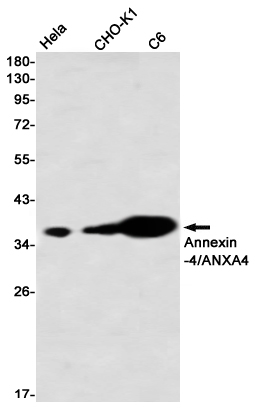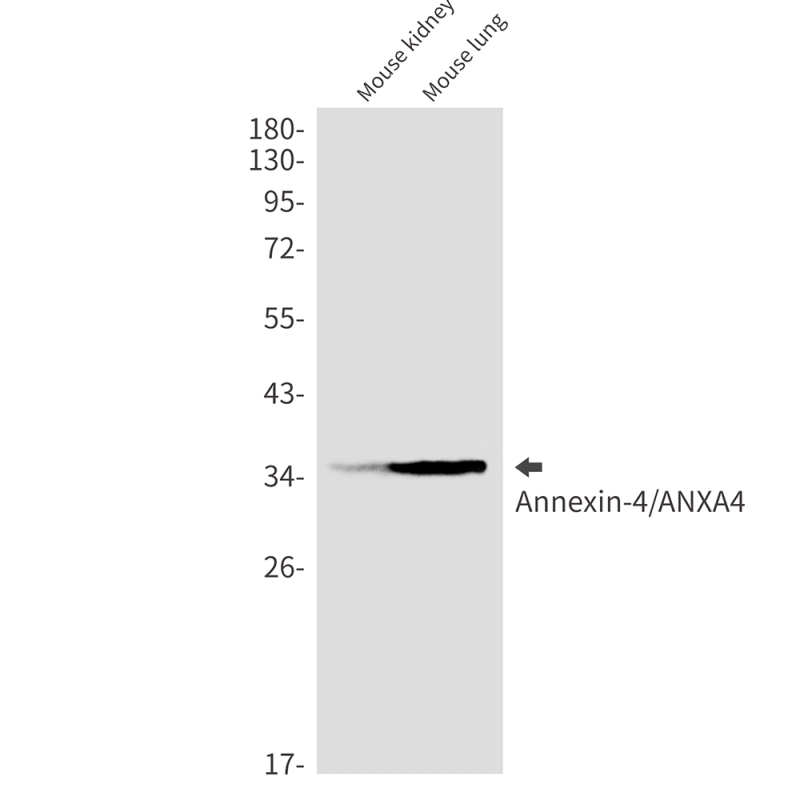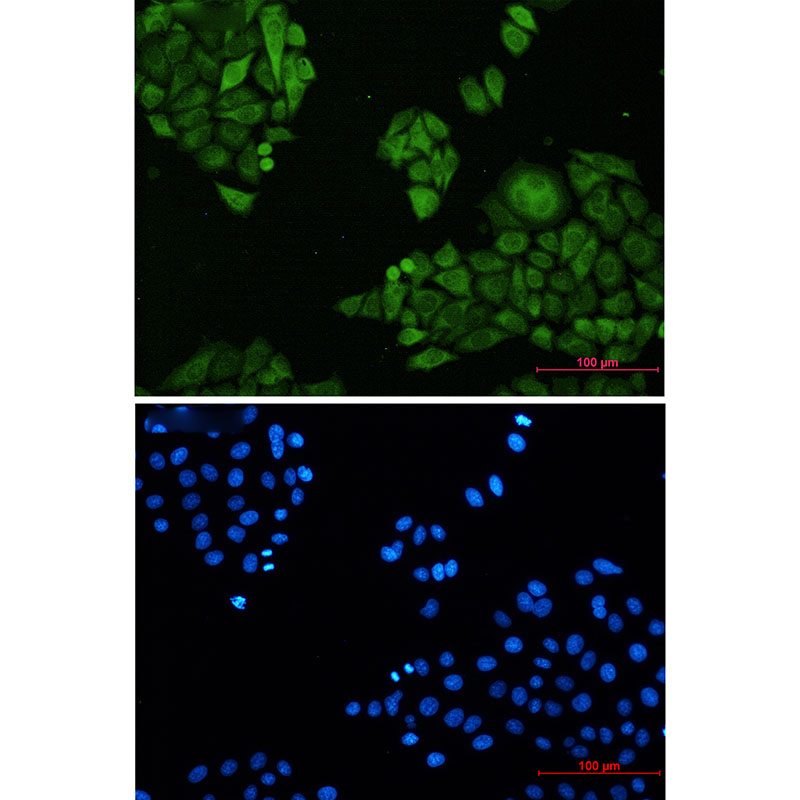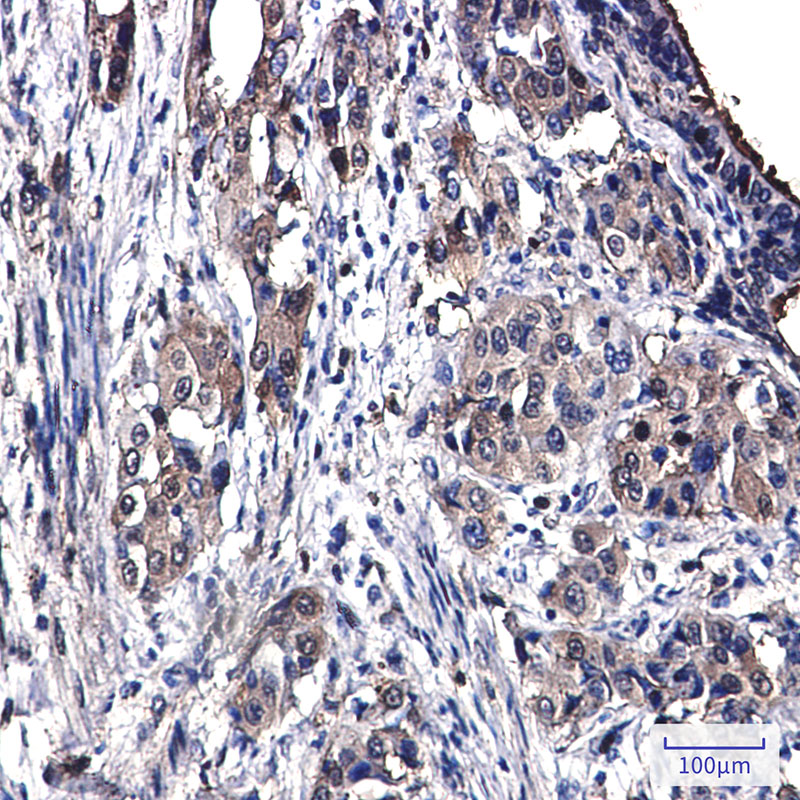



| WB | 1/500-1/1000 | Human,Mouse,Rat,Hamster |
| IF | 咨询技术 | Human,Mouse,Rat,Hamster |
| IHC | 1/50-1/100 | Human,Mouse,Rat,Hamster |
| ICC | 1/50-1/200 | Human,Mouse,Rat,Hamster |
| FCM | 咨询技术 | Human,Mouse,Rat,Hamster |
| Elisa | 咨询技术 | Human,Mouse,Rat,Hamster |
| Aliases | AIV; AnnexinA4; AnnexinIV; ANX 4; ANX A4; ANX4; ANXA4; Chromobindin4; EndonexinI; LipocortinIV; P32.5; P33/41; PAPII; PIG28; PP4X; Protein II; Xanx-4; ZAP36 |
| Entrez GeneID | 307 |
| WB Predicted band size | Calculated MW: 36 kDa; Observed MW: 36 kDa |
| Host/Isotype | Rabbit IgG |
| Antibody Type | Primary antibody |
| Storage | Store at 4°C short term. Aliquot and store at -20°C long term. Avoid freeze/thaw cycles. |
| Species Reactivity | Human,Mouse,Rat,Hamster |
| Immunogen | Recombinant protein of human Annexin-4/ANXA4 |
| Formulation | Purified antibody in TBS with 0.05% sodium azide,0.05%BSA and 50% glycerol. |
+ +
以下是关于Annexin A4(ANXA4)抗体的3篇参考文献及其摘要概述:
1. **"Annexin A4 is a high-expression protein in colorectal cancer and promotes tumor cell proliferation"**
- **作者**: Deng, Y. et al. (2018)
- **摘要**: 该研究通过免疫组化及Western blot证实ANXA4在结直肠癌组织中高表达,并利用特异性抗体验证其通过调控Wnt/β-catenin通路促进肿瘤增殖,提示其作为潜在治疗靶点。
2. **"Role of Annexin A4 in pancreatic β-cell exocytosis revealed by siRNA-mediated knockdown"**
- **作者**: Srivastava, M. & Thorn, P. (2016)
- **摘要**: 研究利用ANXA4抗体检测基因沉默后蛋白表达变化,发现ANXA4通过调控钙信号通路影响胰岛素分泌,为糖尿病机制研究提供新方向。
3. **"Development of a monoclonal antibody against Annexin A4 for detecting chemoresistance in gastric cancer"**
- **作者**: Chen, L. et al. (2020)
- **摘要**: 开发了一种高特异性ANXA4单克隆抗体,用于评估胃癌患者化疗耐药性,发现ANXA4高表达与耐药性相关,可能成为临床预后标志物。
(注:上述文献为示例,实际引用时请核实具体文章信息。)
Annexin A4 (ANXA4) is a member of the annexin family of calcium-dependent phospholipid-binding proteins, which play diverse roles in cellular processes such as membrane trafficking, signal transduction, and apoptosis. Structurally, ANXA4 contains a conserved C-terminal core domain that mediates interactions with phospholipid membranes and a unique N-terminal region that likely regulates its functional specificity. It is expressed in various tissues, including the placenta, lung, and gastrointestinal tract, and localizes to both the cytoplasm and cell membrane.
ANXA4 has been implicated in multiple physiological and pathological contexts. Studies suggest its involvement in regulating ion channel activity, vesicle fusion, and anti-inflammatory responses. Notably, ANXA4 overexpression has been observed in several cancers, including colorectal, pancreatic, and ovarian carcinomas, where it may promote chemoresistance, metastasis, and tumor progression by modulating pathways like NF-κB and EMT (epithelial-mesenchymal transition).
ANXA4 antibodies are essential tools for investigating these biological roles. They enable the detection and quantification of ANXA4 protein expression in techniques such as Western blotting, immunohistochemistry, and immunofluorescence. Commercially available antibodies are typically developed using immunogens derived from human ANXA4 sequences, with validation across multiple applications and species cross-reactivity. Recent research utilizing ANXA4 antibodies has highlighted its potential as a diagnostic biomarker for certain cancers and a therapeutic target to overcome drug resistance in chemotherapy. However, functional studies remain ongoing to fully elucidate its context-dependent mechanisms in health and disease.
×